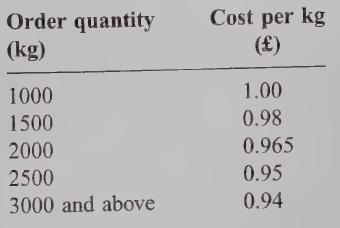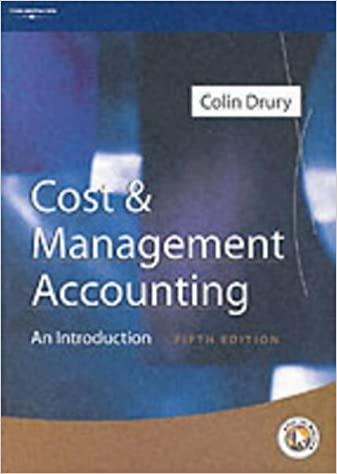Calculation of minimum purchase cost when cost per unit is not constant A company is reviewing the
Question:
Calculation of minimum purchase cost when cost per unit is not constant A company is reviewing the purchasing policy for one of its raw materials as a result of a reduction in production requirement. The material, which is used evenly throughout the year, is used in only one of the company’s products, the production of which is currently 12000 units per annum. Each finished unit of the product contains 0.4kg of the material. 20% of the material is lost in the production process. Purchases can be made in multiples of 500 kg, with a minimum purchase order quantity of 1000 kg.
The cost of the raw material depends upon the purchase order quantity as follows:
Costs of placing and handling each order are £90, of which £40 is an apportionment of costs which are not expected to be affected in the short term by the number of orders placed. Annual holding costs of stock are £0.90 per unit of average stock, of which only £0.40 is expected to be affected in the short term by the amount of stock held.
The lead time for the raw materials is one month, and a safety stock of 250 kg is required.
Required:
(a) Explain, and illustrate from the situation described above, the meaning of the terms ‘variable’, ‘semivariable’ and ‘fixed’ costs.
(S marks)
(b) Calculate the annual cost of pursuing alternative purchase order policies and thus advise the company regarding the purchase order quantity for the material that will minimize cost.
Step by Step Answer:






